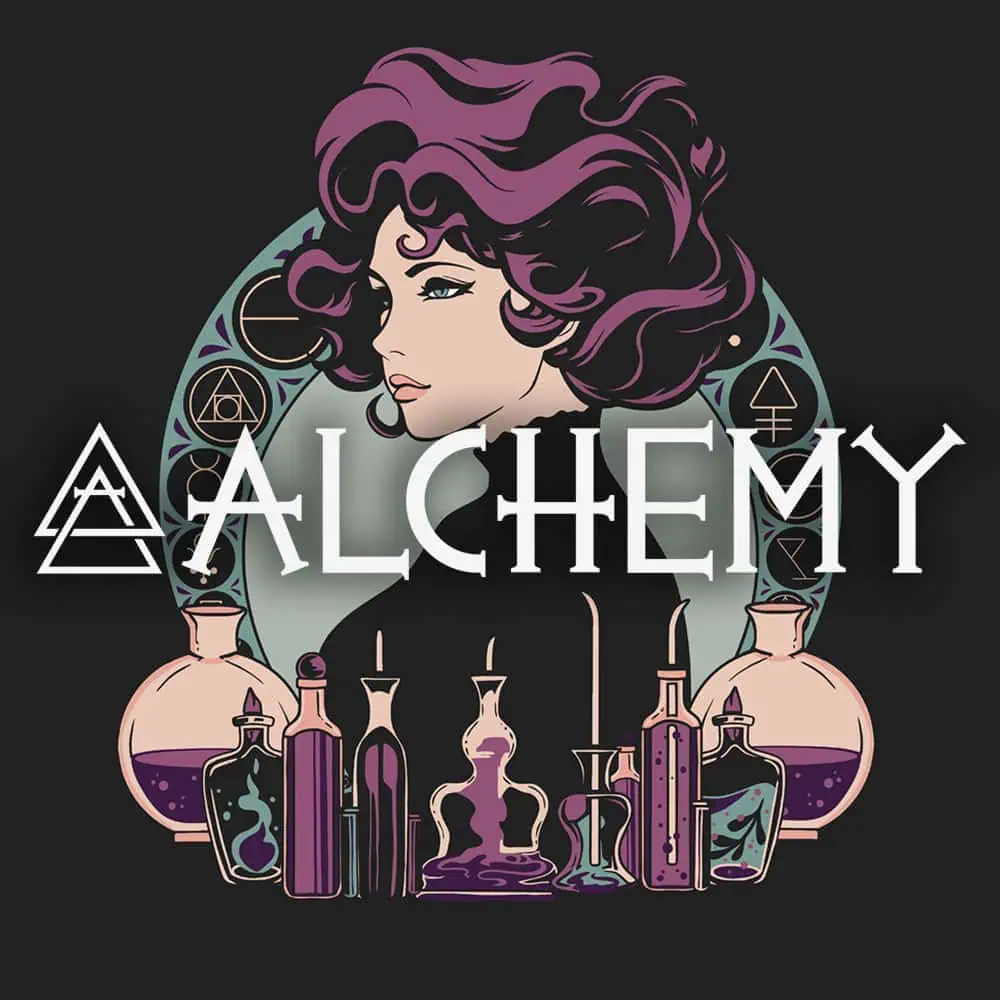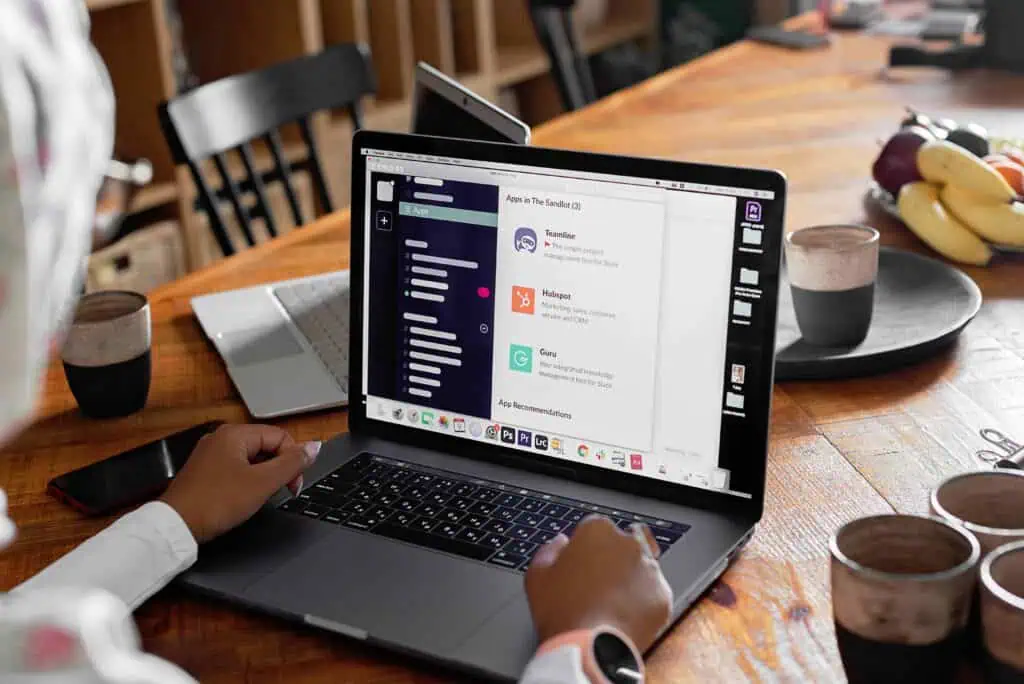
Greg Kerr was looking for a way to earn some extra money for his daughter’s education fund- and came up with an idea that earned him almost $2 Million in annual sales!
Greg shares with us how Alchemy Merch was created and how his business has become so successful. He talks about the challenges he has faced along the way and what marketing strategies have worked for him.
Make sure you read until the end to see his advice for entrepreneurs looking to start a business and where you can go to find more information on Alchemy Merch.
1. Can you tell us a little bit about yourself and what inspired you to start your
business?
I’ve been self employed for all of my adult life. The majority of that has involved being broke while doing it, but it’s always been the only way for me. I started my first business making belt buckles for my band while I was touring.
I made the merch so I could pay my bills while out on the road and other bands started asking if I could make them belts as well and my first business was born.
When I moved to Arizona in 2007, I decided I wanted to start an apparel brand and I started Miles to go, a literary inspired clothing brand. We sold online and to indie book stores all over the world and it was my full time business for almost 10 years.
When my wife and I decided we wanted to start a family in 2016, I had been helping some friends make enamel pins on the side. It was never intended to be an additional business, but the day we found out we were pregnant, I decided to buy a domain for Pin Game Strong and offer the service publicly.
I’ve always loved working with artists and had a lot of experience from the first business working with musicians and brands and through my apparel business where I’d hire artists to fit my vision.
Pin Game took off and quickly became the focus of all of my attention. Within six months, it had overtaken the apparel brand in revenue and hit $1 million in sales in the first 18 months.
It was intended to be a side hustle to add money to our soon-to-be daughter’s education fund, but it ended up being our family’s full time focus.
The entire goal was and still remains to help people create. We want to help remove some of the obstacles that creators face and if we can make their life easier so they can focus on other aspects of their business, then we have succeeded.
Working with creative people every day is continually inspiring. Getting a chance to be a sidecar on their journey and build relationships is very fulfilling. We try to focus on educating our clients and doing what we can to make production appear much easier than it really is.
It was very important to me to offer a service for 100% custom products that focused on brands that would make items to sell for their own merchandise.
The promotional products industry is focused on churn and burn products that are meant as handouts at events. That doesn’t really interest me. I wanted to help make real merchandise, not cheap items that are discarded. That’s still an integral part of our decision making.
2. Could you detail the steps involved in launching your business?
I had been making enamel pins for Miles to go for about two years and thought I had a pretty good understanding of how they were made and I’d developed a good relationship with a factory overseas.
My first time offering to help people was via a comment post on a podcast episode and I saw there was a need for help in the market from someone who understood things from an artist and brand owner perspective.
Before launching officially, I had to lock in the domain, social media accounts, get a logo thrown together and figure out some base pricing I could offer. With making custom items, pricing can vary depending on the details, so I needed to find an easy way to price them that wouldn’t require me having to get exact quotes on every order.
Once the site went live, word of mouth spread quickly within the independent artist community and orders started rolling in. I’d had experience operating businesses, so I was able to focus quickly on what I thought was needed before launching.
Pin Game Strong kept growing and I started to hire people to help us grow. We kept adding in new products and the name no longer seemed to fit and was too niche, so although we’d gained a lot of name recognition, we decided to transition to Alchemy Merch and continue to expand the items we offered.

3. Can you walk us through your business model and how it works?
We work with artists and brands as a production partner to help them make products overseas. Trying to randomly pick a factory on Alibaba is like aiming in the dark and hoping for the best.
It can also be a big financial risk to trust your money and art with a place you know nothing about. Communication with the factories can also be very challenging if you are new to it.
When we decided to figure out pricing, I went off of the promotional products industry model that I was familiar with and then tried to beat it. Promotional products are also priced in a very cloudy way. There are tons of hidden fees and shipping added at the end.
I chose to price everything all upfront, so the price you saw on the site was what you paid at checkout. I knew this would be a volume play, so when figuring out that initial pricing, I tried to think about it as a time based fee. If I’ll accept a minimum order of 50 items, how much do I need to make to make it worth it, while not price gouging.
I believe more in pricing off of time for the lower order amounts than slapping a blind 2x on everything. I knew our customers are price savvy and very diy oriented, so I had to price fairly.
4. How do you handle issues such as copyright and intellectual property rights when dealing with artists’ designs?
We do our best to not accept any work that is someone else’s IP. Alchemy works on a lot of officially licensed products and directly with companies and we understand that it doesn’t matter the size of the artist, it’s still making money off of something you don’t own.
We try to protect artists of all sizes. If an order comes in with unlicensed IP, we refuse or refund it and tell them that we don’t make items like that.
There is a huge market for artist’s stealing IP to make a Pokemon pin or whatever it is because it’s an easy sale for them. We turn those orders down.
I’d had my apparel brand knocked off all over the world and I know how terrible it feels when that happens. Making quick money to support that is not something I’ve ever had interest in.
We can’t know everything, but we do our best and if anyone on the team recognizes the art, we won’t take the order.
5. What challenges have you faced with your business? How did you overcome them?
There are daily challenges and I doubt that will ever end, but we do our best to plan and discuss pain points or obstacles as a team and how to resolve them.
The biggest initial hurdle was that in those first 18 months, when it went from zero to 1 million, it was just me. I was doing everything and a mentor pushed me into hiring some help for artwork. It helped me delegate some of the busy work and continue focusing on sales.
We continued to expand and add in another sales rep, more art help, etc. We are still a small team of 6. The vast majority of our orders are paid upfront and we don’t carry inventory, so our margin is already built in before we place the order with the factory.
6. How much do you make with your business?
We are operated as a sole proprietorship, so all of the business profits get filed with our own personal. The company has to keep a healthy float amount to cover payments to vendors, so we don’t draw out every penny we can.
We’ve been doing just shy of $2 million in sales a year for the past few years. Covid put us into crab mode, going left and right but not forward. This year is looking like we are getting back on track for growth.
For our personal earnings, our lifestyle has improved, but our family only takes draws and payroll to be a little above our bills and investment plans, so we can max out our 401k, IRA’s and our daughter’s 529 education fund.
7. What tools and equipment do you use to run your business?
Because we aren’t physically making the products, most of our tools are software based. We use the Adobe design suite all day, every day. For a shared team inbox system, we use Front and Monday for our CRM/production software.
Our team uses Slack because we are all remote as well and do weekly video meetings to plan and keep connected.

8. What marketing strategies have you found most effective to grow your business?
Although it can be the toughest to consistently produce, word of mouth is hands down the most effective for us. Our industry is very trust based and another artist suggesting to work with us is the best scenario we can have. We try our best to provide a smooth and positive experience for our clients, and when they tell a friend, it goes a long way.
We run google ads and do FB/IG from time to time. One of our most popular promos we do each year during the Chinese New Year is to offer a +10% more on all orders.
Most of our clients are makers, so giving them more product for free that is 100% profit after sell through has proven to be much more effective than coupon codes. We never really do any coupons. Those work great for a retail item, but for our service based pricing, they don’t really work out well on our end.
That being said, maybe it’s time to try one out again to test it out. I sometimes write industry articles or do interviews like this one9. What do you envision for the future of Alchemy Merch?
We have some financial goals we’d like to hit and we want to continue to expand the products we offer. Alchemy puts a lot of time, care and consideration into the products we have on our site.
We spend a lot of time trying to work out all of the details and kinks before anything ever goes live. It’s important for us to build a relationship with any factory we plan to work with and invest time and resources into it.
My personal goal would be to one day be able to operate in more of a true CEO position and have the team expanded to allow me to focus all of my time and energy on the things that help us progress.10. How can others find you- as we are all fans of you now?
The easiest way is to go to https://alchemymerch.com to see all of the custom products we offer. We can also be found on Instagram instagram.com/alchemy.merch.
We are here to help, so anyone can email us with any questions about a project and we will walk them through it and try to find a solution.
Thank you, Greg Kerr for this amazing interview! We love this story of a dad starting a side hustle to earn some extra income for his family. It took off and now brings in $2 Million is sales.
It shows that all you need is an idea and a passion to get your business started!
Be sure to check out Alchemy Merch on Instagram and their website to get more information.